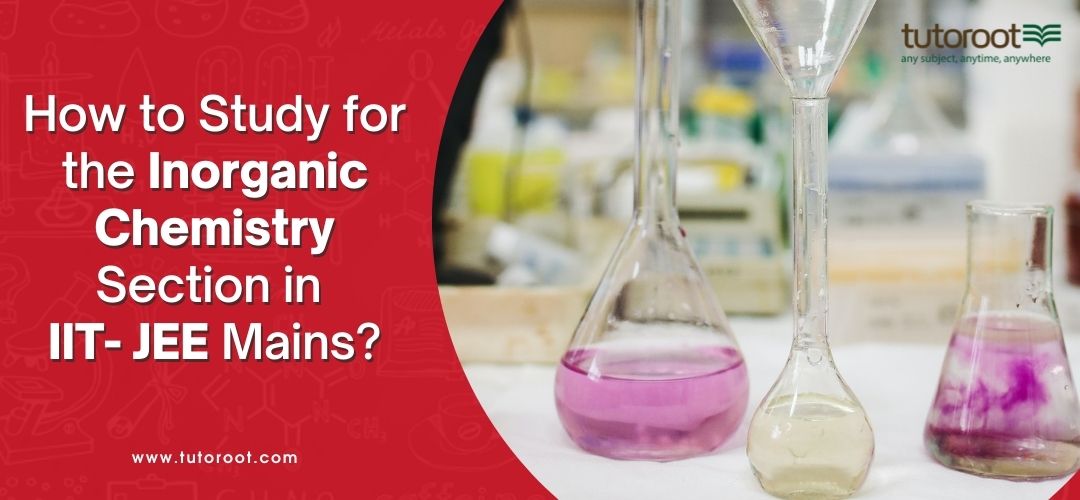How to Study for the Inorganic Chemistry Section in IIT JEE Mains?
Chemistry is one of the three sections of the JEE Main exam, and it is also the most difficult. It necessitates extensive numerical and conversion practice as well as theory updating. Because questions in the Chemistry section are considered clear, there is little chance of receiving negative marks if you attempt them.
Chemistry is one of the three sections of the JEE Main exam, and it is also the most difficult. It necessitates extensive numerical and conversion practice as well as theory updating. Because questions in the Chemistry section are considered clear, there is little chance of receiving negative marks if you attempt them.
Physical and General Chemistry, Inorganic Chemistry, and Organic Chemistry are all covered in the JEE Main Chemistry syllabus. Inorganic Chemistry is widely regarded as the most accessible and high-scoring portion of Chemistry. It does not require students to solve problems, perform calculations, or utilise complex formulae to answer questions. It’s similar to answering general knowledge questions.
| Tutoroot launches Crash Courses for this academic year on IGCSE, CBSE Class 10, IIT/JEE, NEET.
For more info Check |
5 Tips to Success in learning Inorganic Chemistry
- Start with the most important chapterssuch as p Block, s Block, and Chemical Bonding. After that, go on to less crucial subjects based on their weightage.
- Utilise the NCERT books to their greatest potential: Most of the time, students do not adequately read the NCERT and instead study from other required materials, leaving them with an extensive curriculum and limited time. You should begin your preparation with NCERT because that is where most of the questions will be found.
- Take the main exam with the inorganic chemistry section: Most people do not prepare for inorganic chemistry because each chapter contains a lot of material and requires a lot of studying.
- Make a list of all the facts and exceptions in one place to help you revise quickly and boost your chances of scoring well in this area.
- Use the following books to practise: Practicing answering the questions and following the format will help you improve your recall abilities and time and efficiency when taking the IIT JEE Main exam, where every second counts.
Chapters in JEE Main Inorganic Chemistry and their Weightage
- Some Fundamental Chemistry Concepts : Mole concept, Chemical Combination Laws – 8%
- States of Matter – 23 %
- Atomic structure – 10.50 %
- Chemical Bonding and Molecular Structure: Ionic bonding, covalent bonding, a quantum mechanical approach to covalent bonding, and molecular orbital theory – 6.6 %
- Chemical Thermodynamics : Fundamentals and Laws of Thermodynamics – 5%
- Electrochemistry and redox reactions account – 8.41%
- Equilibrium : Physical equilibrium, chemical equilibrium, and ionic equilibrium – 10%
- Chemical Kinetics – 10.50%
- Surface chemistry : Absorption, colloidal state – 17.9%
Make NCERT a standout book for JEE Main Chemistry prep, mainly inorganic chemistry.
Inorganic Chemistry
An Approach to Solving Inorganic Problems Stay away from the situation if the answer is unknown. Proceed to the next question as quickly as possible.
After you’ve finished with the NCERT books and mastered the fundamentals of inorganic chemistry, you should move on to this excellent book by To practise with. There are hundreds of multiple-choice questions, assertive-type questions, and single-choice questions. Tandon, O.P., Lee, J.D., and others
Answers to the questions and detailed explanations can be found at the end of each chapter, which is meant to clarify concepts. Proper reasoning and experiments are used to support each idea. The book’s language is also appropriate for students in India.
Conclusion
Tutoroot assists these students by providing live IIT JEE interactive classes taught by highly qualified professionals. They help you stay on track with your JEE preparation and monitoring and assisting you in making progress.

